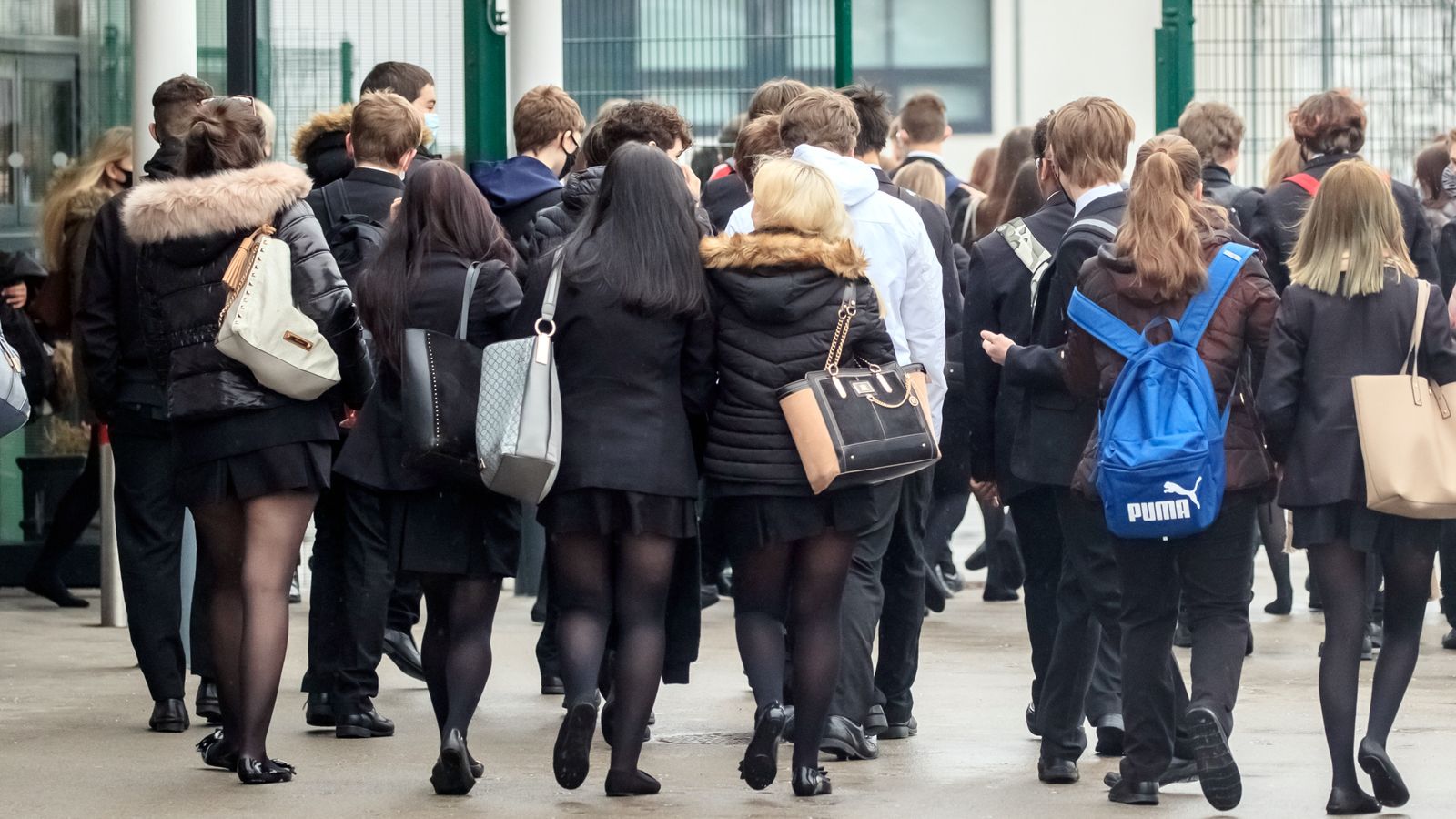It’s back to school and back to work. But are we heading back to another big surge in COVID-19 cases?
Not even the country’s best-known epidemiologist knows.
Professor Neil Ferguson, of Imperial College, told an event organised by the Institute for Government that there’s just too much uncertainty at this point in the pandemic.
More contact between people means more opportunity for the virus to spread. But high levels of immunity will mean fewer people are vulnerable.
The virus will find a new equilibrium and that is likely to lead to a rise in cases.
Scotland is a case in point. Schools went back a few weeks ago. Cases doubled – though there are hints that they may now be beginning to plateau.
Please use Chrome browser for a more accessible video player
You would expect much the same pattern in England. But where will the peak be?
If cases rise for a couple of weeks, then the impact on hospital admissions is likely to be small.
But Prof Ferguson warned that a rise of six to eight weeks would “stress” the NHS.
The role of the schools in fuelling a rise in cases is still not clear. It may not be the classroom itself, but the extra opportunity their parents have to socialise during term time.
But there are other factors too. Fewer people seem to be wearing masks, certainly in the South West where I have been in recent days.
All this is happening while scientists struggle to agree on whether healthy children should be vaccinated.
Prof Ferguson says the health risks and benefits are “finely balanced”.
There is concern about the very small risk of heart damage from the vaccine. But the disease itself may also damage the heart.
His hunch is that the Chief Medical Officer, Chris Whitty, will recommend extending the rollout to 12-15 year olds.
Not just because the vaccine may offer some individual benefit, certainly to children’s education, but because it will increase population immunity.
And in the coming weeks that could be crucial.






















